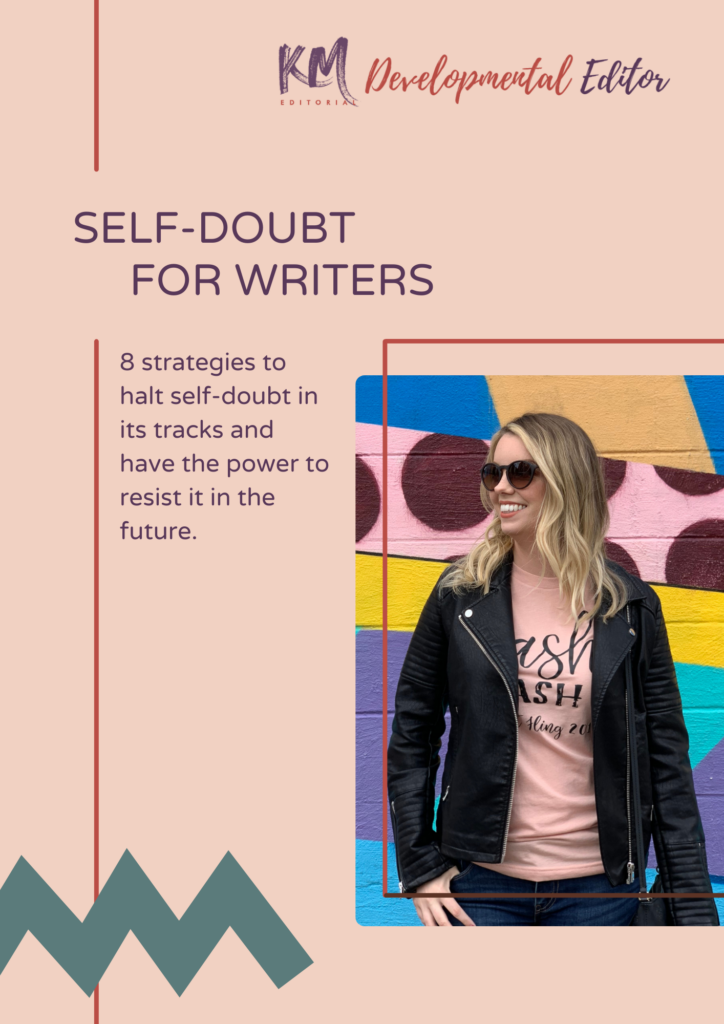Do you need an editor?
Yes.
This is the only answer. Every writer needs an editor. Editors need editors. Full disclosure: I am a freelance editor, and when I publish my book, I will be hiring a few editors as well. You read that right. Not just one editor—an entire team.
Professionalism is key.
Please your readers!
The goal is to publish your best possible product. Editors will help you take it there. They do more than just catch a few spelling and punctuation errors here and there—depending on the type of editorial work they can help you develop your work in every way desired.
What type of editor/edit do you need?
Different editors do different things. I for one am a developmental editor, or book doctor as some people say. This means I focus on content edits. This usually involves things like critiques or manuscript evaluations, substantive edits, developmental editing, and line editing. The goal of these edits is to work with the author to strengthen their story telling and writing abilities. This is the first stage of editing.
These edits look at the writing style, voice, pacing and flow, characters, readability, intended audience, genre, narrative, plots and subplots, etc. These edits are designed to help an author tighten their manuscript. Does the protagonist grow or change from beginning to end? Are the characters’ actions believable? Does the plot feel forced or organic? Are the characters’ goals and motivations fully developed? Is there internal and external conflict? Is this actually a romance novel or is it women’s fiction?
This is also where things such as backstory, show vs. tell, POV, dialogue and more are addressed.
The next stage of editing is copyediting. Copyediting is the final stage of editing before a manuscript goes to typesetting. There is no rewriting or substantive changes in a copy edit. A copy editor provides one of three level of edits: light, medium, or heavy. During these edits, a copy editor looks at things such as grammar and word usage, spelling, capitalization, punctuation, numbers, clarity, missing words, basic fact checking, querying anything questionable, and more.
The final stage of editing is actually called proofreading, and this is NOT copyediting. These are very different things. Proofreading involves one of two things: checking the final copy-edited manuscript with the typed proof copy (the hard copy or electronic galley), or reviewing the final copy (without the edited copy to refer to). It used to be the former, but as the publishing industry has changed the latter happens more often. The role of a proofreader is to make sure no typographical errors remain or appeared when the work was typed as the final copy.
Copy editing is the last look at a manuscript before it’s sent to production. Proofreading is last look before the book is distributed.
Keep in mind with all editors—a good editor doesn’t try to change your writing voice. A good editor helps you enhance it.
Where do you find an editor?
The first place I recommend authors search for an editor is the Editorial Freelancers Association (EFA) site. Authors can use this site to search the directory and find an editor based on the services they offer, their specialties or genres, and to see editors’ resumes. Another way an author can use this site is to post a job ad. This is free for the author to post and it is sent as an email to all the members who’ve subscribed. Any interested editor is free to contact the job poster and submit a proposal for the job. Sometimes authors are overwhelmed by this because they may receive a hundred responses and could have trouble narrowing it down.
A few other sites I recommend are Publishers Marketplace (search), Reedsy (post a job), and even social media if you are familiar with it: Twitter and LinkedIn are great sites for this. There are other sites to find editors, and Googling sometimes works, but I recommend EFA because it houses the largest database of editors and freelancers of all kinds, so you will definitely be able to find the right editor(s) for you.
For a guideline of editorial rates, refer to the chart at this link: http://the-efa.org/res/rates.php
Check out this guide to selecting an editor from Kindlepreneur: https://kindlepreneur.com/book-editors/
What should I do before hiring an editor?
Send them the BEST version of your work so far. Just because you are hiring someone to evaluate your manuscript or check for errors doesn’t mean you should send them your first draft. You should have gone through your manuscript content-wise first—work with a critique partner and/or beta readers—then after revisions, go through it with a fine-toothed comb and fix all the errors or strange wording that pops out at you. This not only helps you grow as a writer, but it also gives the editor a chance to focus on other, deeper parts of the book instead of spending valuable time fixing the obvious. Wouldn’t you like to get your money’s worth?
Get a sample edit. This is usually a sample edit on 500-1,000 words of your work. This benefits you and the editor because you get a chance to see how the editor works, determine if you two are in sync, and it gives the editor a chance to see what’s involved, estimate the amount of time the project will take, and provide a quote.
Discuss expectations. Be sure that you both agree on the work involved, and if you are unsure of anything or have questions ASK ahead of time. Adding something on later will cost the editor more time (which they may not have because of the way the booked their schedule) and it will cost you more money.
Do you have additional questions about the editing process? Share in the comments below and I’ll be sure to reply!
Don’t miss a post! When you sign up for the KM Editorial monthly newsletter you’ll receive a free downloadable Guide to Getting Published.


 Download your free copy of these 8 tried-and-true strategies to stop self-doubt and imposter syndrome as a writer. And, build the power to resist it in the future.
Download your free copy of these 8 tried-and-true strategies to stop self-doubt and imposter syndrome as a writer. And, build the power to resist it in the future.
“A good editor doesn’t try to change your writing voice. A good editor helps you enhance it.” – This. This is the most important thing to remember when choosing an editor, and I wish I’d known it sooner.
The first professional editor I worked with (NOT Katie, naturally!) tried to force me to rewrite my entire MS to fit in with the POV that she thought would be best, tried to forcibly rewrite the backstory of one of my characters to something she considered ‘nicer’ (changing it from “she’s a teen with behavioral problems due to parental abuse” to “she’s a teen with behavioral problems because her loving parents recently died in an accident and she’s overcome with grief”) and who argued for a long time that some of the injustices I put in couldn’t possibly happen because she hated the idea of a world where such things could be possible, and so refused to consider them. No matter how many sources I cited, she also refused to believe that they were not only possible, but were already going on, and that a large part of my motivation for writing that particular YA book was to try and draw attention to them and hopefully get more people talking about them.
End result: although some of Bad Editor’s other comments were valid, she left a foul taste in my mouth, soured me completely on the whole editing process and made me very suspicious about approaching and/or working with other editors, purely because the couple of sessions we did left me mentally and emotionally battered and exhausted from our constant arguments. Unfortunately, she was my first experience with a professional editor – and I was a lot younger at the time – so whenever I saw anything about editors for indie authors, my editor-phobia would kick in and my gut reaction was, “Yeah, right; I’m NEVER going through THAT again!”
Luckily, RevPit finally helped me see that not all editors are like that! My super-negative experiences with Bad Editor mean that I do still get somewhat nervous/tongue-tied sometimes, but at least now I have a Fab Editor like Katie to help me along 😀
I am a hobby writer who is writing a Crime mystery from an idea I got during COVID. I am on a dozen or more mailing lists, most of which I joined to get their “free gift” as a result of their owners giving virtual interviews. Along with occasional free blog articles, most newsletters are pitching their editing or coaching, or ghostwriting services.
I don’t recall how I got on your mailing list, but I’m glad I did and was able to read your ‘Hiring an Editor’ article where you suggested picking editors based on the services they offer, their specialties or genres, …. I will take your advice and look for editors experienced in writing Crime Mysteries – not Romance, YA, non-Fiction,….
I also liked Jude Austen’s comment warning about Editors who might try to rewrite parts in their preferred POV or backstory …..